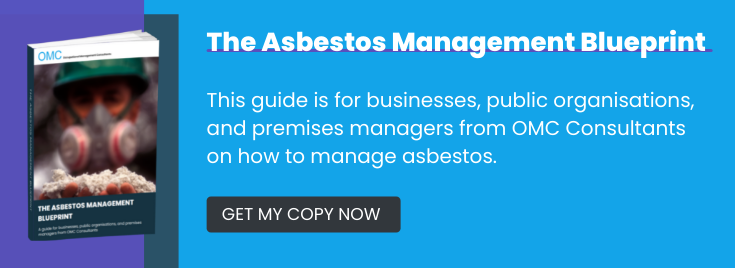It’s well known that asbestos is a dangerous substance. Once valued for its electrical resistance and fireproofing qualities, it was employed widely in industry and construction for many years. However, over time, the risks to human health became better known with cases of lung damage and early death directly linked to the substance. Several types of asbestos were banned in the UK in 1985 and its use was phased out, though a full ban didn’t come into effect in 1999. Today, risk management practices are arranged for the handling and removal of asbestos from existing installations, and there are significant penalties for improper management.
However, nearly five decades later, asbestos is still thought to be the cause of thousands of deaths each year. Figures published by the HSE in 2015 list over 2,452 deaths from mesothelioma, a form of lung cancer attributable directly to asbestos. Companies and contractors are now required to use high standards of control wherever there is a risk of exposure to the substance. The Health and Safety Offences, Corporate Manslaughter and Food Safety and Hygiene Offences Definitive Guidelines came into effect on 1 February 2016 and failure to comply with regulations often results in hefty fines.
Asbestos Management
In recent years, one sector in particular – construction – has seen an increase in fines for breaches of asbestos regulations. For many years, asbestos-containing materials (ACMs) were widely used in construction for their fireproofing and insulation qualities. Though new asbestos installations have been banned since 1999, that still leaves many older buildings with significant disposal problems.
A duty of care falls on those who maintain properties to manage asbestos and protect workers from exposure. Detailed records must be kept of the condition of ACMs in the building, with risk assessments and management plans. Any removal work needs to be done by licenced contractors and any activities that risk exposure must be documented and closely controlled.
Asbestos Regulations
The Control of Asbestos Regulations, 2012 (CAR), stipulate the permitted conditions and documentation requirements for the maintenance of existing ACMs. A further set of rules, the Registration, Evaluation, Authorisation and Restriction of Chemicals Regulations, 2007 (REACH), prohibit the supply and importation of asbestos.
Property holders who need to manage asbestos should work with a skilled and licensed contractor, such as OMC Consultants. Asbestos licences are issued by the HSE Asbestos Licensing Unit, to applicants who have a proven health and safety record and can demonstrate the skills, knowledge, and experience to carry out safe asbestos management and disposal.
Penalties For Non-Compliance
Asbestos regulations are usually enforced by the HSE and local authorities. Failure to comply with regulations can be costly. Fines of between £200,000 and £750,000 have recently been issued to several companies in breach of regulations. The size of penalties is dependent on the size of the company, and large companies with a turnover of £50 million or more could be subject to fines of over £4 million.
High profile cases have included Britannia Hotels’ £200,000 fine for inadequate asbestos assessment during refurbishment work. Outside of the construction sector, Power Link Machines (UK) was found to be using asbestos-containing gaskets and were fined £22,000.
Next Steps
To avoid risks to health, it makes sense to talk to an expert. To find out more about your responsibilities and how to avoid costly penalties, contact OMC Consultants today.

Image Source: Unsplash

